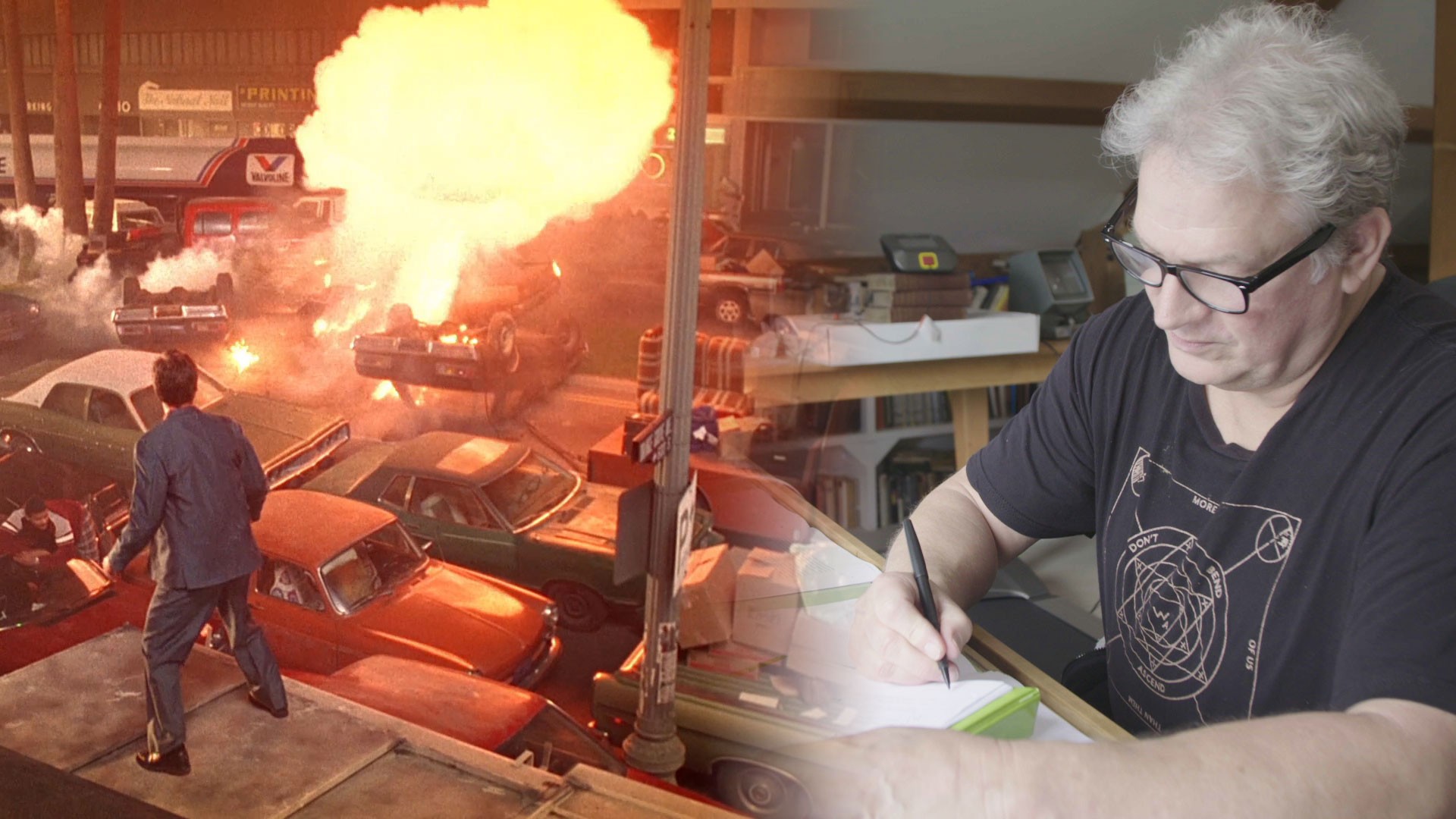In his play Philoctetes, Sophocles tells a story of deceit: The Greek commander Odysseus wants to convince the titular exiled war hero to fight again, and he enlists Neoptolemus, a young, impressionable boy to lie for him. "I know, my boy, it isn't part of your nature to tell untruths or resort to double-dealing," he says to Achilles's son, "but victory's a prize worth gaining." Neoptolemus is persuaded, and the plot centers on his uneasiness with these double-dealings, and on the growing trust between him and Philoctetes. In the end, Neoptolemus's compassion and integrity override the Greek interest, and he comes clean, confessing Odysseus's scheme to Philoctetes.
Advertisement
The play represents the failure of rhetorical manipulation in the face of one's own natural moral intuitions, our own sense of right and wrong. These themes from centuries ago are still relevant today, as shown in Building the Wall, a new play by writer Robert Schenkkan (All the Way, Hacksaw Ridge, The Kentucky Cycle), which officially opened its New York City run on May 21 at New World Stages, and plays through July 9. The play is set in El Paso, in a near future in which Trump has made inroads toward his threats of mass deportation and building barriers by establishing jail-like facilities where "illegals" are rounded up and held in captivity, with the help of one of the play's two main characters.
Watch on Motherboard: 'The 80s Cult Classic Envisioning the Final Hour Before Nuclear Apocalypse':
The story of Philoctetes resonates deeply with Schenkkan's script. After all, the Greek play is about a powerful demagogue who trades in overblown and exaggerated speech in order to justify his own ends at any cost, who makes those lower in wealth or stature feel special, and who cajoles others into carrying out his self-interested plans.Much of Building the Wall is about the danger of such individuals, and the danger of loose words, in general. Schenkkan wrote the play this past October, while then presidential candidate Trump was "making extraordinarily naked racist and nativist appeals based around illegal immigration, immigrants in general, and border security," he told me during a recent dress rehearsal. "What was even more disturbing than the appeals to racism was the way in which political leaders and press commentary were trying to normalize this. 'It's just words. He doesn't mean it.' But words matter. They matter very much."
Watch on Motherboard: 'The 80s Cult Classic Envisioning the Final Hour Before Nuclear Apocalypse':

The story of Philoctetes resonates deeply with Schenkkan's script. After all, the Greek play is about a powerful demagogue who trades in overblown and exaggerated speech in order to justify his own ends at any cost, who makes those lower in wealth or stature feel special, and who cajoles others into carrying out his self-interested plans.Much of Building the Wall is about the danger of such individuals, and the danger of loose words, in general. Schenkkan wrote the play this past October, while then presidential candidate Trump was "making extraordinarily naked racist and nativist appeals based around illegal immigration, immigrants in general, and border security," he told me during a recent dress rehearsal. "What was even more disturbing than the appeals to racism was the way in which political leaders and press commentary were trying to normalize this. 'It's just words. He doesn't mean it.' But words matter. They matter very much."
Advertisement
James Badge Dale. Photo by Carol Rosegg/courtesy of Jeffrey Richards Associates
In one of Building the Wall's most powerful scenes, one of the two characters suggests that even if Trump never builds his physical border wall, more danger may exist in his rhetoric that calls for one. "Who would want to come here now?" he asks.It's a question with timely relevance, in light of a proposed travel ban that has faced setbacks from the courts yet has likely helped feed a significant drop in international travel to the US, strained relationships with traditional US allies, and a rise in hate crimes against minorities since the election.The play opens to a scene of a man in an orange jumpsuit, Rick (James Badge Dale), facing an African American historian, Gloria (Tamie Tunie), in a one-way mirrored prison meeting room. We learn through Gloria's questioning that Rick comes from a working-class background (his father is an elderly Walmart greeter who can't retire because of financial reasons); he served during the second Iraq war; and he initially supported much of Trump's ideology: "Without strong borders," Rick says, "you have no country."
Schenkkan does a fantastic job of inhabiting the mind of a Trump voter, creating empathy if not compassion and allowing us to see the rationale behind many controversial stances. We eventually discover the reason for Rick's incarceration: He was a security guard in a facility where he was told illegals would be "processed and repatriated," until discovering that the higher-ups had more malicious and illegal intentions, ones that Rick and the other security guards carried out. Though Rick expressed initial resistance, he was eventually persuaded, partly after President Trump visited the facility and told him personally what a great job he was doing, and after his superiors suggested he would already be incriminated if he chose to speak about what was happening.Like other dystopian works of art, Building the Wall is derivative and reflective of our current moment, and cautionary about the path we are headed on.
Advertisement
Building the Wall is set on Day 1,000 of the Trump administration (the play makes the assumption that he lasts that long). Like other dystopian works of art, it is derivative and reflective of our current moment, and cautionary about the path we are headed on. "As we've seen with The Handmaid's Tale, imagining the future allows you to really explore the present," Schenkkan said.To say that the play is timely is a bit of a misnomer—it literally has been shaped as events unfold. "I continue to revise and add as newsworthy events seem like they belong in the play so it retains a very contemporary feel," he explained. The play succeeds in feeling both timely and timeless; the story could be applied to other instances of demagoguery and passive compliance, along with grand scale lack of compassion (the chaotic aftermath of Katrina and its terrible mishandling is evoked, as well as the Holocaust. In the case of the latter, the play suggests—perhaps a bit heavy-handedly in its parallels—that such a horror could happen again)."We've been working on making the play less of the moment and more of any moment," said director Ari Edelson.
Writing that speaks to our precise present moment involves a good deal of haste, which in turn means relinquishing perfectionism. At times, the dialogue felt clunky, Rick and Gloria like spokespeople for the writer's own political fears and grappling, forebodings of what could actually transpire wedged into the characters' mouths. Their relationship felt static, and they remained unchanged by each other; I found myself craving more of a trajectory or evolution of the relationship between the two characters, one that would develop as their conversation progressed (in the beginning of the play, Rick is surprised that Gloria is black—"I just wasn't expecting it," he says. He denies that he has any problem with her race, yet his discomfort is apparent). Though perhaps a connection would be artificial, and the point is that the divide between them can't be bridged.
Advertisement
Throughout, the play succeeds in sustaining the audience's interest in one single setting and situation. Which begs the question: Who is the intended, or ideal, audience?"I'd love to have Trump supporters in the audience," said Edelson, "but I'd also like to have die-hard liberals really question their own point of view."There's an authentic search in this play for insight into where each side is coming from, of how people can take actions that go against their own nature, ones that can't be excused but at least somewhat understood. We hope that, like Neoptolemus, one's better instincts shine through and overtake other loyalties, though often that isn't the case.Schenkkan expressed similar sentiments. "The play quickly becomes a personal conversation as viewers begin to think about the way they are behaving now," he said. "All I ever want is to send an audience out excited and provoked to reflect on their own lives."Follow Zaina Arafat on Twitter.Building the Wall by Robert Schenkkan is now playing through July 9 at New World Stages in New York.
